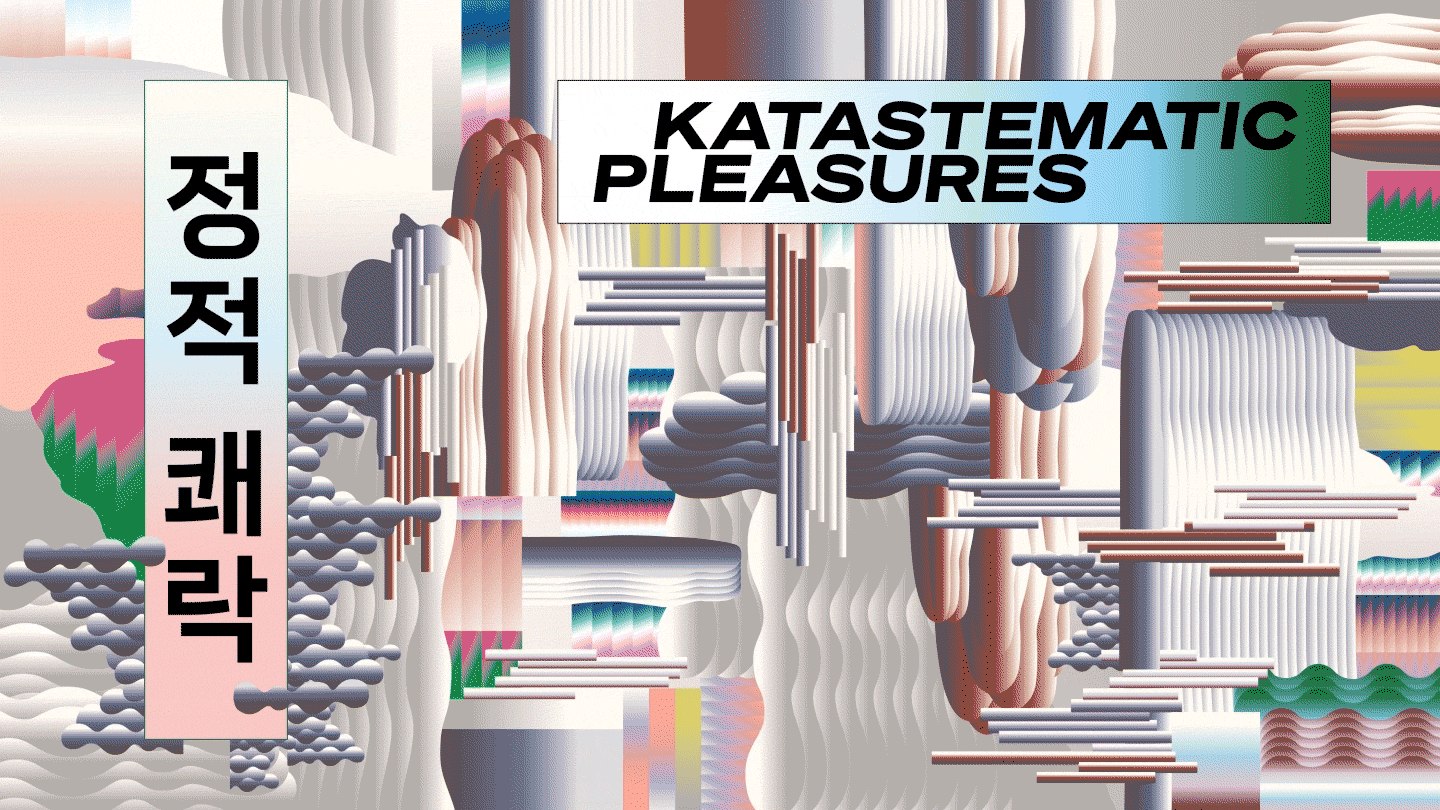September 7–December 1, 2024
leeleenam studio
10, Jejung-ro 47 beon-gil, Nam-gu
61642 Gwangju
Republic of Korea
Przemysław Jasielski, IP Group (Dominika Kluszczyk, Jakub Lech, Bogumił Misala), Alicja Klich, Madina Mahomedova, Maciej Markowski
In his project Katastematic pleasures, the curator of the Polish Pavilion at this year’s Gwangju Biennale Pawel Janicki (inspired, among other things, by the diagnoses of philosopher Byung-Chul Han) gives voice to male and female artists who stand defiantly against the stream of media infotainment, proposing a story about other pleasures developed in the language of contemporary media art.
Paweł Janicki’s activities are extremely difficult to classify. In his works, he draws primarily from music, contemporary and media art, as well as posthumanist practices. Janicki is a new media artist, author of music performance works, curator of art projects and producer.
Katastematic pleasure—the state of homeostasis—isn’t to be confused with apathy or being unwilling to respond to stimuli or persisting in the conviction that there is no cause-and-effect connection between the actions we take and the external circumstances. Among other things, it is a pleasure precisely because it indicates the fact that we are effective.
Visitors to the Polish Pavilion will notice that its contents are a cross-section of time, and will be able to encounter current themes that emerged at different points in the past. These include: the display of WRO Art Center’s unique collection, including both decades-worth of media art video documentations and Maciej Markowski’s soundless sound sculpture; Przemyslaw Jasielski’s installation that ironically dissects the entanglement of civilisational aspirations and their real and not-so-real consequences; the immersive and attention-enhancing space created by the IP Group; Madina Mohamedova’s AI-mirror inviting us to face our true selves; and finally, activities proposed by Alicja Klich, that effectively challenge the art-world’s self-absorbed attitudes.
Aimed at a wide international audience, the presentation in the Polish Pavilion invites us to think about the role of media only conventionally called new, as well as actually the latest technologies in today’s artistic landscape and our place in the local and planetary system of relations and to join in the multi-threaded story of the present.
Alicja Klich’s workshops—“Art is no longer for me”
The joint activities of the author, her collaborators, and the audience, comprise the use of screen printing techniques to apply the message of the project’s title onto clothes (or other textiles, such as pillows and fabric bags) brought by members of the public, in their chosen language. If you haven’t yet encountered screen printing, this will be an excellent opportunity to learn—while having fun—this manual method of transferring a template onto a flat fabric surface using simple, analog tools: a screen, ink and a squeegee.
These screen printing activities complement the exhibition of Alicja’s objects—it evolved over the course of presenting previous versions of the work and turned out to be a powerful exercise in gentle irony, community activity, and a rebuke of the pomposity of the art world.
We invite all those interested, regardless of age or previous experience with similar activities. Remember to bring with you the clothes (or other fabric items) on which you want to print the slogan—this will make it easier and quicker for you to print the title of Alicja’s work (and we will not always be able to provide textiles for everyone interested).

